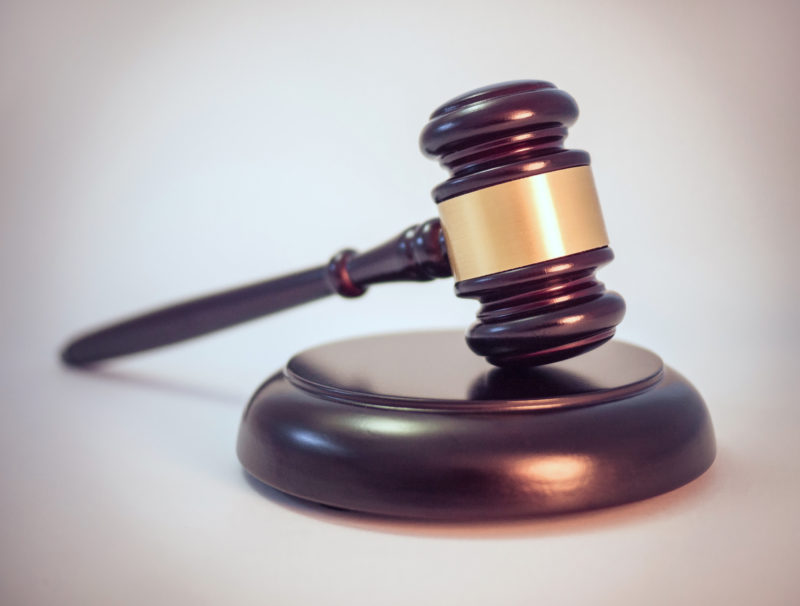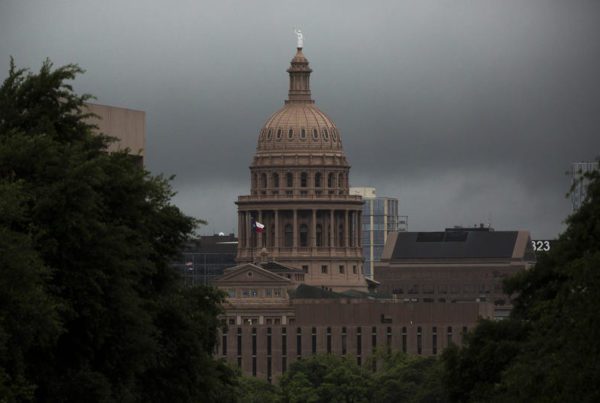Lawmakers had authored a number of bills addressing law enforcement and criminal justice. But many hit dead ends. Others that made it to the finish line brought only muted cheers from advocates who say they want to see more.
For a closer look at how a number of criminal justice measures faired this session, we turned to public radio reporters from the Texas Station Collaborative.
The Sandra Bland act
First up, Rachel Osier Lindley, statewide coordinating editor with the Texas Station Collaborative, reviews what was probably the most high-profile criminal justice bill, the Sandra Bland Act.
The Sandra Bland Act is named for the 28-year-old African American woman, who, in 2015 was arrested after a traffic stop in Prairie View. She was found dead in her Waller County Jail cell three days later.
The bill originally had a laundry list of changes to make policing fairer, including cracking down on racial profiling and making it tougher for police to search vehicles after a traffic stop, and more. Law enforcement groups criticized it, saying it would make their jobs harder.
Geneva Reed-Veal, Sandra Bland’s mother, testified in the bill’s defense last month. “I don’t want you to just tell me you stand with me,” she said. “I don’t want you to go behind a door and say you stand with me. I want you to prove to the world just as my daughter’s death was nationally televised that you stand with my family.”
But as the bill made its way through the Texas House and Senate, many key provisions were altered or dropped, disappointing Bland’s family. Sharon Cooper, Bland’s sister, told the Texas Tribune, “It’s a complete oversight of the root causes of why she was jailed in the first place.” Cooper says the final version of the bill won’t fix the systemic failures that led to her sister’s death.
It would, however, divert people in a mental health crisis to treatment centers instead of jail. In a hearing, Senate Criminal Justice Committee Chair John Whitmire said that even a stripped-down version is progress. He added, “If we made it as comprehensive as it was when we introduced it, we probably wouldn’t be having this hearing today.”
Affordable justice
The Legislature also approved an effort to reduce the number of poor people who end up in jail because they can’t pay fines. Houston Democrat Senfronia Thompson explained SB 1913 to her fellow House members, asking them to imagine a driver with a busted tail-light who can’t afford to fix it until the next paycheck. “But before they’re able to do that, they get a ticket,” she said. “And then they not able to pay their ticket, and they got a tail light busted on their car, and they end up in jail anyway.”
You can’t be sent to jail in Texas for a broken tail light, but you can be sent to jail if you fail to pay the ticket for the broken light. That’s a reality for too many Texans, Thompson said. This bill pushes judges to consider whether a defendant can actually pay their fines and fees. It also tries to make sure people know they have the right to ask for alternatives like community service if they can’t afford to pay. “They’re not getting off scot free,” she said. “We’re getting something for something.”
It’s not clear how many people go to jail in Texas solely because they can’t afford to pay fees for tickets and low-level crimes, but advocates say that none should. Back in the 70s, the Supreme Court ruled that locking people up when they can’t afford to pay a fee — a debtors’ prison, basically — is unconstitutional.
“The problem has been that implementing that Supreme Court decision just hasn’t happened in a systematic way,” Rebecca Bernhardt from the Texas Fair Defense Project said. “So we still have a whole lot of courts that follow practices that for all practical purposes result in people who just can’t pay going to jail because they just can’t pay.”
She also pointed out that there’s a lot more work to do to stop this entirely. She said she’s seen headlines announcing the end of debtors’ prisons in Texas, but in reality it’s more like Texas took a small step in the right direction.
The bill is headed to Governor Greg Abbott for a signature, along with two bills addressing sexual assault on college campuses.
Campus sexual assault
Lawmakers responded to Baylor University’s ongoing lawsuits by making sexual assault on campus a top legislative priority this session. Just two weeks ago, a new lawsuit brought fresh allegations that the school failed to investigate a reported rape involving members of the football team. A survey in March by the University of Texas at Austin also made national headlines when 15 percent of female students reported that they had been raped. Some legislators say it’s time for a cultural change on campuses.
The bills passed this session help campuses address the problem of under-reported assaults so schools can get a more accurate understanding of the scope of the crisis.
One state senator – Austin Democrat Kirk Watson, whose district includes the UT-Austin campus – took the lead with a package of bills to increase reporting. Watson says some students don’t come forward to report assaults if they’re afraid of being punished for a different reason related to the attack. His bill, SB 966, defends students against an underage drinking charge – but only when it’s linked to the incident. According to Watson, “What this does is it ensures that the defense isn’t abused and the intended purpose is to remove a reporting barrier for young people who suffer from sexual assault.” SB 966 has already been signed into law – effective September first.
Another Watson bill, SB 968, will require colleges and universities to set up online anonymous reporting. Watson says, “It’s a reporting requirement that makes it easier so that we get more reporting.” The bill is now on Governor Abbott’s desk, waiting to be signed.
A related bill that would have created a stricter definition of consent died in the Legislature. It called for schools to use a new standard for defining consent, similar to a California law passed in 2015.
Jen Rice and Christopher Connelly contributed reporting.















